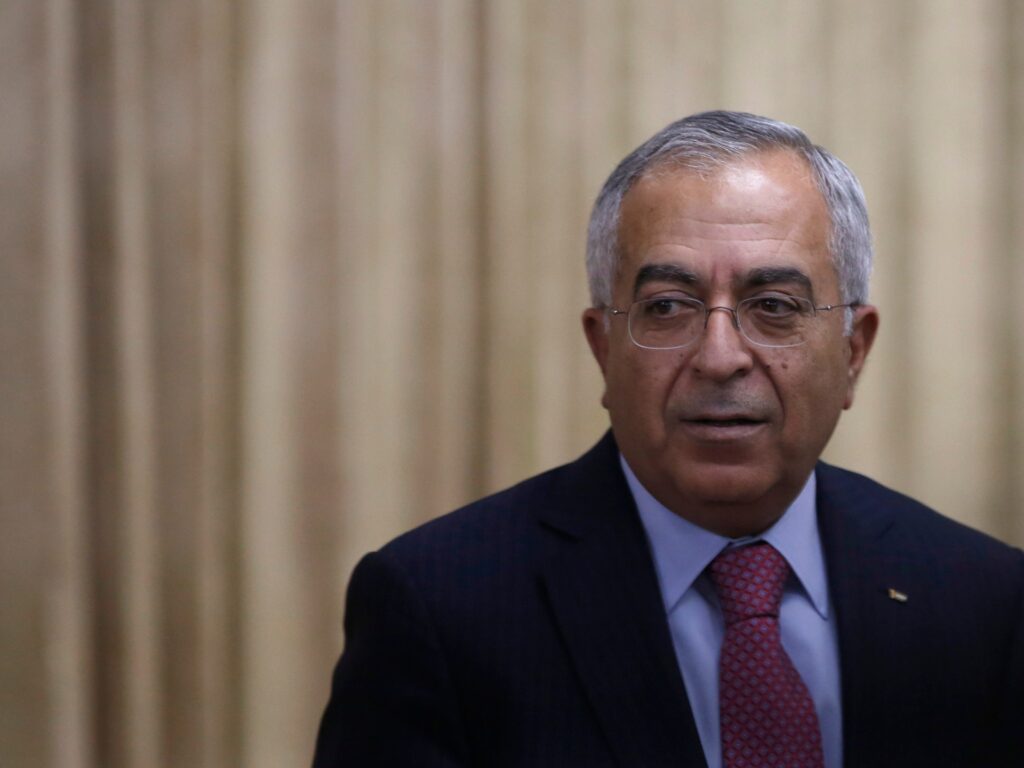Former Palestinian Prime Minister Salam Fayyad doubted the possibility of implementing US President Joe Biden’s plan to end the war on the Gaza Strip, which the UN Security Council adopted by an overwhelming majority last June 10.
The plan calls for an exchange of prisoners between Israel and the Islamic Resistance Movement (Hamas), an expansion of humanitarian aid, and then a permanent end to the war.
Read also
list of 2 items
Russian newspapers: Putin’s visit to North Korea creates a new political reality
New York Times: Another massacre threatens Darfur
end of list
Fayyad’s skepticism came during an article he wrote in the American magazine Foreign Affairs, as he believes that there is little certainty about how Biden’s plan will be implemented “despite the massive loss of life, destruction, and untold misery that the war has caused.”
Fayyad believes that implementing the American plan will be surrounded by great difficulties, because the Israeli government announced that it will not stop its attacks unless it is able to achieve “complete victory,” noting that eliminating Hamas completely remains an unattainable Israeli goal.
Do not agree
Salam Fayyad assumed the presidency of the first emergency government (known as the caretaker government) on June 15, 2007, commissioned by President Mahmoud Abbas, a day after he declared a state of emergency in the territories of the Authority and dissolved the National Unity Government headed by Ismail Haniyeh, following the control of the Qassam Brigades – The military wing of Hamas – in the Gaza Strip.
Fayyad resigned from the presidency of the government in April 2013, after a difference in views between the institutions of the presidency and the Council of Ministers.
According to Fayyad, there is still no consensus on how to manage the Gaza Strip after the war, and even reaching a ceasefire agreement – which could pave the way for a sustainable calm – has become gradually difficult to achieve.
He attributed the reason behind this negative path to fear rather than ignorance. He said that ignorance of the facts of the situation was certainly not the cause as much as it was “reluctance to confront or prioritize it.”
A call for unity
The former Palestinian Prime Minister confirmed what he had previously written in the same American magazine last fall, when he called on the leadership of the Palestinian National Movement to unite under the banner of the Palestine Liberation Organization, which must accept the accession of Hamas, as well as other important factions, to its membership.
He believes that unifying the Palestinian internal front is an essential element to enable the Palestinian Authority to carry out its correct role in governing both Gaza and the West Bank in accordance with its mandate upon its establishment in 1994.
He considered that the major world powers – by agreeing to the UN Security Council resolution – had taken the first step towards accepting this vision.
He pointed out that the UN resolution stressed – in addition to calling for an end to the fighting – “the importance of unifying the Gaza Strip with the West Bank under the leadership of the Palestinian Authority.” But Fayyad adds that acknowledging this is only the first step in this direction.
The former Prime Minister went on to stress that Hamas will not disappear from the scene, and will remain present even after the dust of war settles.
Hamas held out
Fayyad said that the Hamas movement withstood the weight of Israeli military force in a pocket of land – (referring to the Gaza Strip) – that took Israel only a few hours to seize it in the June 1967 war.
He added that the movement would confidently confirm that it was victorious in the war, which had the effect of calming down opposition voices, especially in the Gaza Strip, which made it withstand the questioning of its decision to attack Israel last October.
In contrast, according to Fayyad, Israel will find it difficult to claim that it has won, and will fail to achieve most – if not all – of the declared war goals, especially the overthrow of Hamas from ruling Gaza.
Fayyad expects that the institutions of the Hamas movement – including the Gaza police – will form an integral part of the post-war reality, adding that this does not suggest, of course, that they will be able to deal with the “huge task” of rebuilding the devastated Strip alone.
It is believed that Israel did not achieve its desired victory, but rather entered itself into an endless war, harming its international reputation, and it will not benefit it by accusing the war’s opponents of anti-Semitism.
Greater credibility
In the near term – according to Fayyad – Hamas will gain greater credibility within both Gaza and the West Bank. If it has not already done so, the author of the article is likely to end up competing with the PLO to represent the Palestinian people.
Perhaps the most important matter – in the opinion of the former Prime Minister – is the failure of the PLO leadership to expand its ranks to include all important Palestinian political factions and movements, especially Hamas and Islamic Jihad.
He stressed that it is necessary for all concerned parties to know that the Palestinian Authority will not be able to govern the two regions unless the Palestinian political entity is united first.
The PLO must be more inclusive, and the Palestinian Authority must govern through a government with full powers, in accordance with the provisions of its Basic Law and supported by a broad national consensus.
He concluded by saying that failure to do so would make the Gaza Strip live for decades in “the largest open camp in the world.”





